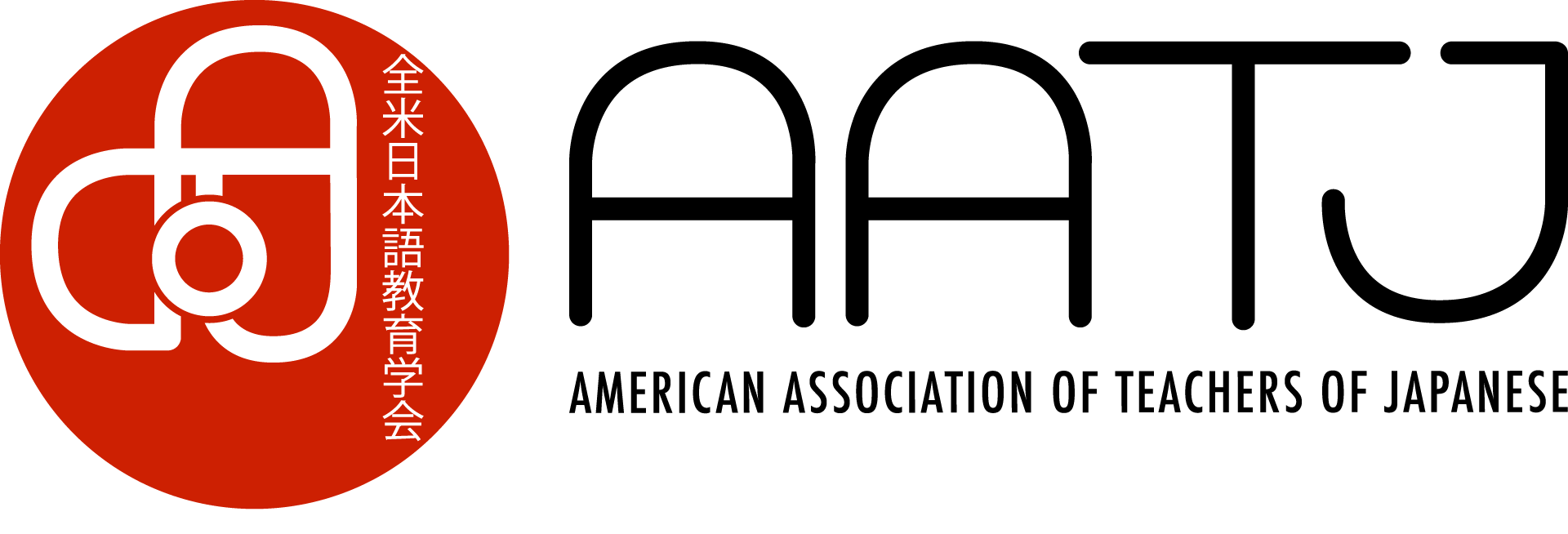Basic Concepts of Japanese Language Teaching
The JOINT online professional development program of the American Association of Teachers of Japanese (AATJ) most recently offered Basic Concepts of Japanese Language Teaching in Spring 2012. The course began March 12 and ended April 29, 2012.
This 6-week online course provides new and/or prospective Japanese language teachers with training and resources to gain basic knowledge about foreign language teaching in the U.S. This course is designed primarily for prospective or new teachers with up to three years of teaching experience, but it may also be beneficial for teachers who have more than three years of experience but have not received much professional development in foreign language teaching.
The course, which features the use of interactive technologies and collaborative work by participants, aims to help beginning teachers understand the basic principles of Japanese language teaching, and to seek out their ideal “kyoshizo” (image of what sort of Japanese language teacher they want to be).
Description: The course introduces important aspects of Japanese language teaching, including (1) issues in Japanese Language education in the U.S., (2) the ACTFL proficiency guidelines, and (3) Standards for Japanese Language Learning. The course utilizes background readings and some existing materials as examples, but hands-on experience is emphasized, and course participants will develop their own teaching philosophy and learning scenarios. Participants will work on assigned readings and lectures independently, hold online video conference discussions in small groups, keep a reflection journal, and work on projects individually and collaboratively in pairs. Assignments and evaluations are designed to accommodate the differing needs of those who are enrolled in the course. Teachers at both the K-12 and post-secondary levels, as well as both native and non-native speakers of Japanese, are invited to enroll.
Faculty: Kazue Masuyama (California State University, Sacramento); Eiko Ushida (University of California, San Diego).
Schedule: This course is delivered entirely online. Participants are expected to spend 5 to 8 hours a week on average on coursework: one or two hours for reading, one hour listening to an online lecture, one hour in real-time group discussion, and two to three hours working on assignments and projects. Participants must be available for a one-hour weekly online discussion on EITHER Thursday 6-7 p. (Pacific standard time), Friday 3-4 pm (Pacific time), or Friday 5-6 pm (Pacific time).
Materials: Selected reading materials will be made available online.
Language: English: reading materials, sample materials, lectures (PowerPoint), individual project (teaching philosophy);
Japanese: Lectures (voice, scripts), group discussions (switch to English if necessary);
English or Japanese: Reflection journal, pair project (learning scenarios), correspondence, manuals.
Credit and Grading: Two units of graduate credit from the University of Colorado, Boulder, is made available for those who wish it, at a cost of $120. Those participants who elect to receive credit will receive grades for the course; grades will be based on participation, materials development projects, completion of assigned readings, and self/peer evaluation. All participants who complete the course will receive certificates of completion from AATJ/JOINT.
Fees: The fee for the course will be $95*, payable after enrollment is confirmed. (This fee is separate from the cost of registering to earn credit, which is optional.) There is a limit on the number of participants who can be accommodated, and you will be notified after sending your e-mail enrollment request.
Cancellation Policy: Participation in this course requires a commitment to devote several hours a week to real-time online collaborative work with classmates and instructors. Time will be devoted at the beginning to making sure that participants are familiar with interactive technology and can use it comfortably. If a participant is forced to withdraw for unavoidable reasons once the course has begun, his or her enrollment fees cannot be refunded.
Required Technical Background for Participants: Participants should be familiar with basic Internet features such as looking for information, reading online materials, downloading materials, sending and receiving emails, and online chatting. Experience with using Skype (voice and/or webcam) and a collaborative writing tool such as Google Docs or wiki would be a plus. A fast Internet connection (Ethernet or wireless) will be needed to work on various online activities; dial-up modem connection is not recommended. Participants who do not have a webcam and microphone built into their computers will need to purchase one for course participation (the cost for this equipment is usually about $25). A headset (or set of iPod earphones) are also necessary for video conference discussions.
*JOINT program courses can be offered at a low fee thanks to the support of several organizations: the Japan Foundation, the Toshiba International Foundation, the Shoyu Club, and the US-Japan Foundation.

